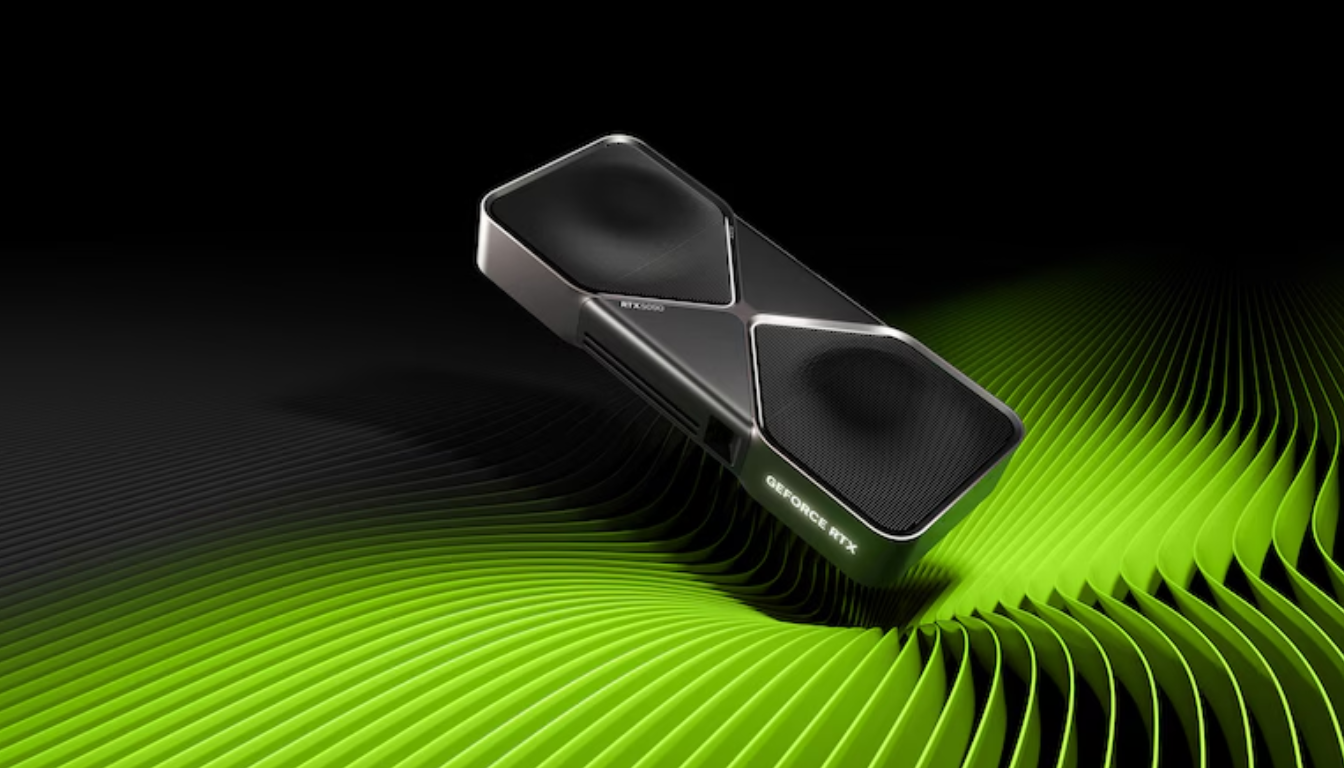At CES 2025, Nvidia CEO Jensen Huang announced a slate of cutting-edge AI technologies that underscore the company’s dominance in artificial intelligence innovation. From advanced GPUs to personal supercomputers and AI foundation models, Nvidia is setting the stage for the next phase of AI development across industries.
GeForce RTX 50 Series: Revolutionizing AI in Gaming
The GeForce RTX 50 series GPUs were a key highlight of Huang’s keynote. Built on the advanced Blackwell architecture, these GPUs promise groundbreaking performance improvements. The RTX 5090 and 5080 models offer up to twice the efficiency of their predecessors, integrating AI-powered neural rendering and enhanced ray tracing capabilities.
Priced at $1,999 for the RTX 5090 and $999 for the RTX 5080, these cards are set to hit the market on January 30, with additional models following in February. By redefining the limits of gaming and creative applications, Nvidia continues to lead in GPU innovation, enabling users to experience unprecedented levels of realism and responsiveness.
Project DIGITS: Personal AI Supercomputing
Another major announcement was Project DIGITS, Nvidia’s first personal AI supercomputer. Compact yet powerful, DIGITS is designed for AI developers, researchers, and enthusiasts looking to work with large-scale AI models from their desktops. Powered by the Nvidia GB10 Grace Blackwell Superchip, the device offers up to one petaflop of AI computing power.
DIGITS enables users to prototype, fine-tune, and deploy advanced AI models without relying on cloud infrastructure. At a starting price of $3,000, it democratizes access to high-performance AI computing. The device is expected to launch in May 2025, promising to redefine what is possible in desktop AI research and development.
Foundation Models and Industry Collaboration
Beyond hardware, Nvidia introduced new AI foundation models aimed at advancing robotics, autonomous systems, and generative AI applications. These models are designed to be integrated across industries, enhancing productivity and driving innovation in sectors like healthcare, logistics, and transportation.
Nvidia also announced a partnership with Toyota to develop next-generation autonomous vehicle technology. Leveraging Nvidia’s AI platforms, this collaboration aims to improve the safety, efficiency, and scalability of self-driving cars. The partnership highlights Nvidia’s commitment to applying its AI expertise to real-world challenges and opportunities.
Market Response and Broader Implications
The announcements had an immediate impact on Nvidia’s stock, which rose 2.5% in premarket trading following Huang’s keynote. The positive market response reflects investor confidence in Nvidia’s strategic direction and its ability to maintain a leadership position in AI innovation.
Nvidia’s CES 2025 announcements reaffirm its role as a driving force behind AI’s expansion into diverse industries. By introducing tools that empower both developers and enterprises, Nvidia is not only shaping the future of AI but also democratizing access to its transformative potential.
As AI continues to evolve, Nvidia’s innovations in hardware, software, and partnerships will likely remain at the forefront of the industry, positioning the company as a key player in shaping the technological landscape of the future.



